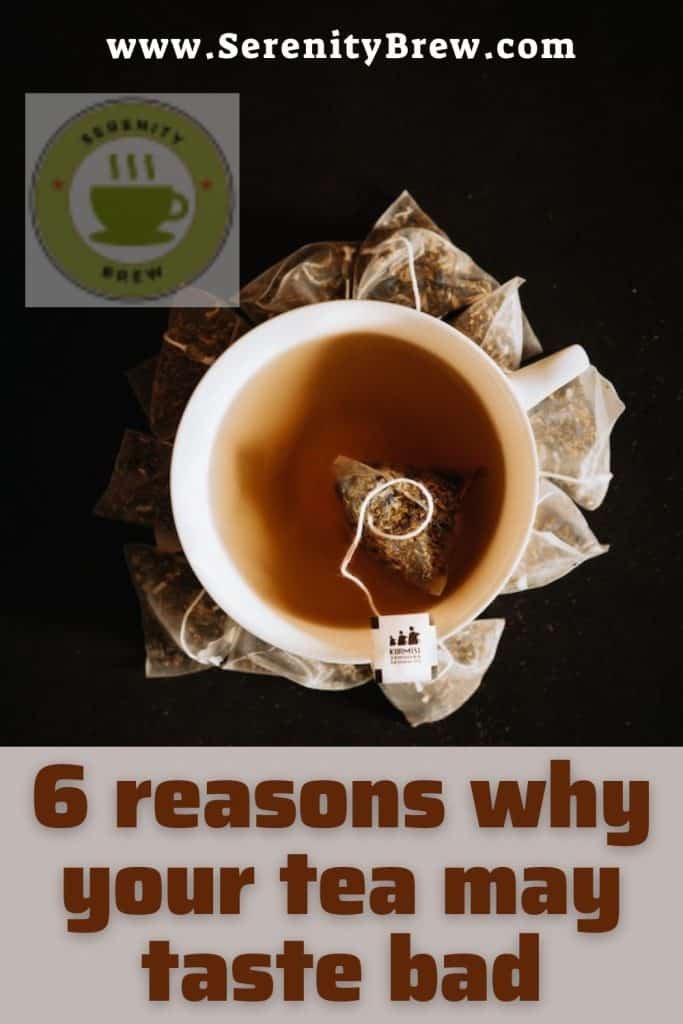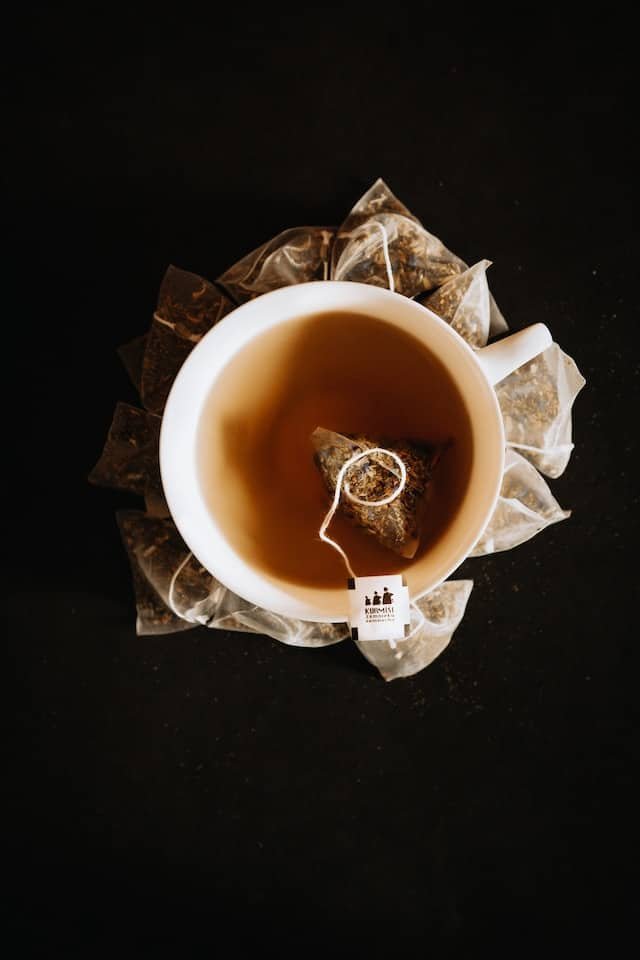
Does your tea taste bad? Here are some of the causes and how to avoid them so that you have a delicious tea drinking experience. Sometimes we make mistakes with the water, sometimes it’s just the type of tea.
Does your tea taste bad? Here are some of the causes and how to avoid them so that you have a delicious tea drinking experience. Sometimes we make mistakes with the water, sometimes it’s just the type of tea.
1- Time counts
One of the biggest problems for those who start to prepare their own tea is having no idea how long to leave the bag in the cup with hot water. What’s more, there is never a lack of someone who drinks tea with the bag inside, which would scare away even the most liberal Briton.
Tea is a very sensitive preparation . If you leave the leaves or the bag steeped in hot water for too long, your tea will be bitter, because you will be extracting too many tannins. These tannins are excellent anti-inflammatories and antioxidants , but when the amount in your cup is excessive, it will give the tea a bitter and astringent taste.
Herbal teas can also taste bitter because many contain tannins, so shortening the steeping time will make them taste better.
When using green tea , let the bag steep in the water for no more than 2-3 minutes.
With black tea and rooibos you can extend it up to 3-5 minutes.
White tea or oolong tea should be steeped for a minimum of one minute and then checked every 30 seconds until it has reached the perfect brew time. In some cases, this can take up to 10 minutes. It depends on how you like it .
Herbal teas or infusions are less delicate, although they generally release their full flavor after 5 minutes. If you leave the herbs in the hot water for no more than 7 minutes, you can avoid the bitter taste.
2- The temperature of the water
Another way to ruin a tea, as common as the weather, is the temperature of the water. When the water is very hot, cook or burn the tea leaves.
For example, it is a huge mistake to add the leaves or the tea bag to boiling water on the stove and leave them there to boil together for a few minutes. The tea will be very bitter, undrinkable.
Now, there is no need to go the other way either: if the water is too cold it will not extract the flavors of the tea and you will drink something very similar to water.
So what temperature should the tea water be?
For green tea, 80 C is sufficient. If you use hotter water you will burn the tea and you will not be satisfied with the result. If you don’t have a thermometer, bring the water to a boil and let it cool for about 2-3 minutes.
For black tea and rooibos, 90 C is fine. You can use slightly hotter water, but don’t overdo it or it will end up bitter, full of tannins.
For the white tea, you will need the water at 75 C and a lot of patience when preparing it. White tea is very delicate, and you’ll need to check it every few seconds to see if it’s the flavor you like.
For herbal teas, never use boiling water. Use 90 C, as you would for black tea. And never, ever boil water with the herbs in it. You’ll be ruining the flavor.
If you really like tea, buy a water thermometer. You will see that you get the best of each sheet.
3- The quality of the water
In general, it is not something that we pay much attention to since we are used to using the water in our home and we believe that it is the best.
But it is necessary to take it into account, not only to prepare your tea but to drink in general. Check the purity and hardness of your water. Mineral content, chlorine, and pH levels can affect both the flavor and aroma of the tea, even if it is imperceptible to the palate. To purify the water try putting a filter down the downspout or use bottled mineral water to see if you notice a difference.
As for the hardness, you will know if the water is hard because it collects scale or mineral deposits in the pots or kettles. Hard water also leaves a dull stain when you drop a few drops into a glass. This is not a health problem, but it can slightly change the taste of the tea. Try buying bottled water, it does not need to be mineralized.
However, if the unpleasant taste of the tea is bitter, then it may not be the quality of the water or the hardness, but rather the temperature used.
4- Tea is not eternal
Another way to ensure that your tea tastes great is to store it well. In general, you can’t use tea bags that have been sitting in your cupboard for more than 3 years.
Also, do not use leaf tea that has been left in an improperly sealed can for more than 1 year.
Actually, to preserve its flavor, the tea should be kept in a dark, dry and cool place, out of direct sunlight and well away from any source of heat. There should be no airflow as it will cause the flavor to evaporate.
Obviously in our kitchen we do not always take these special conditions into account. You can solve this by buying fewer bags of each flavor and storing them as well as possible. If you place them in an airtight jar and in the lower part of the cupboard (the heat rises to the upper shelves) you can keep them longer and with their flavor intact.
5- Be careful with foods with a strong flavor
If you’ve eaten something very flavorful, especially with a lot of onions, garlic, or peppers, your tea may taste strange.
Strong flavors, whether beverage or food, will do two things:
*They will leave a residue in your mouth, making the tea taste similar to the ones you ate or drank before
*They dull your sense of taste, since the flavor is so intense that you will not feel the subtle notes of the tea.
So if you have just eaten smoked meats, spicy stews, orange juice, cola or tonic water, or just brushed your teeth, you can expect that the taste you perceive from the tea is not true.
It is best to wait an hour before savoring subtle flavors such as tea, even the most intense ones such as fruit.
Green tea , the most drunk in the world, is widely used to “cleanse the palate” of strong flavors. This is the case of sommeliers and food tasters, who usually rinse their mouths with green tea between samples.
6- Consider renewing your cup

The material, condition and type of cup can affect the taste of the tea. The short explanation is that the thinnest cups with the smoothest surface are the best for drinking tea. Or any drink, really.
A thin cup will be easier to drink from, as it won’t spill in and around your mouth like a thick cup will. This is why bone china that is so thin is better for drinking tea than the thick coffee mugs that are so fashionable.
If your mug has a smooth, enamel interior finish, no drink’s flavor will leave its mark on the surface, so it won’t contaminate your tea. In addition, it will be easy to wash, and the tea will not leave stains. Quality glass mugs that do not absorb flavors are also recommended .
But if you have to drink from a rough metal cup, the taste will be different and it could easily collect residue due to the texture of the metal.
If you have tried all these resources and still find that your tea does not taste good, perhaps that tea is not for you. You don’t have to like all teas! Many people find black tea too strong or fruity teas cloying. If you try other flavors it is very likely that you will improve your experience with the tea.
